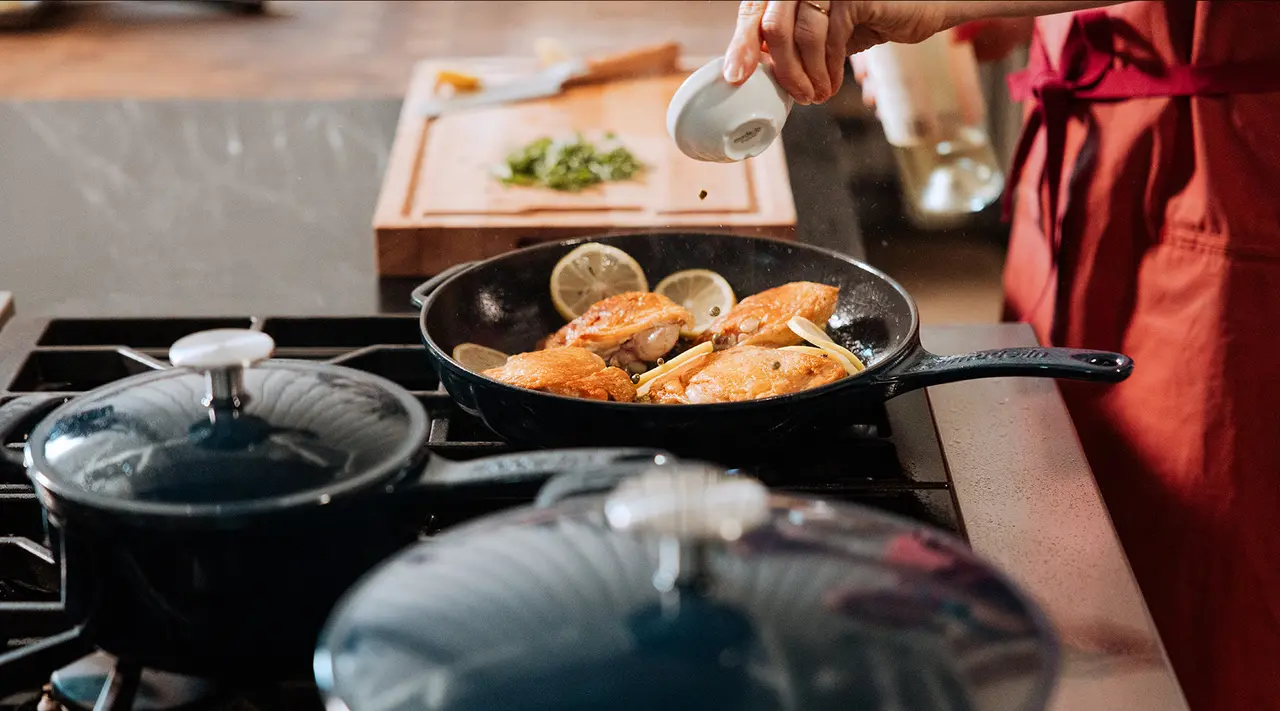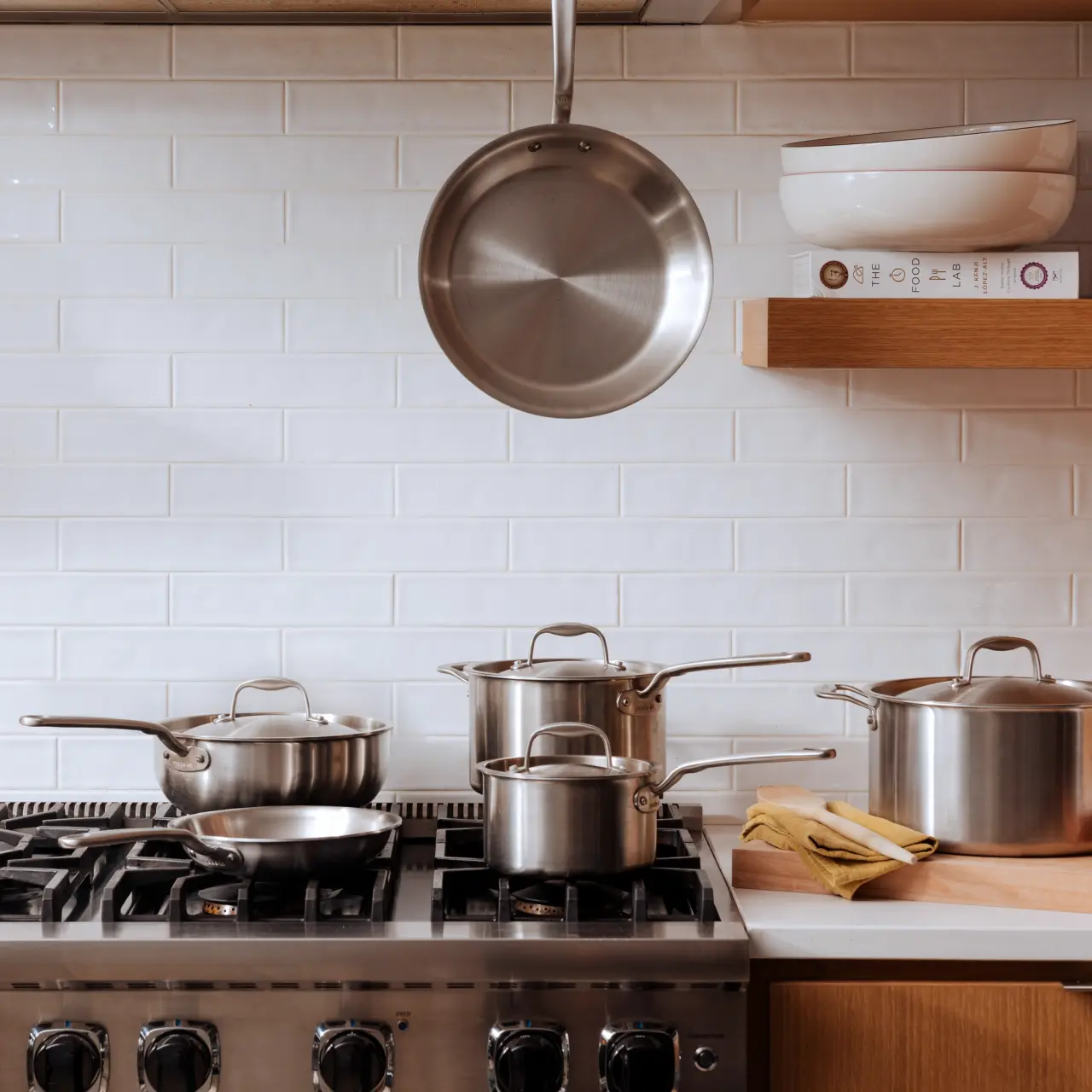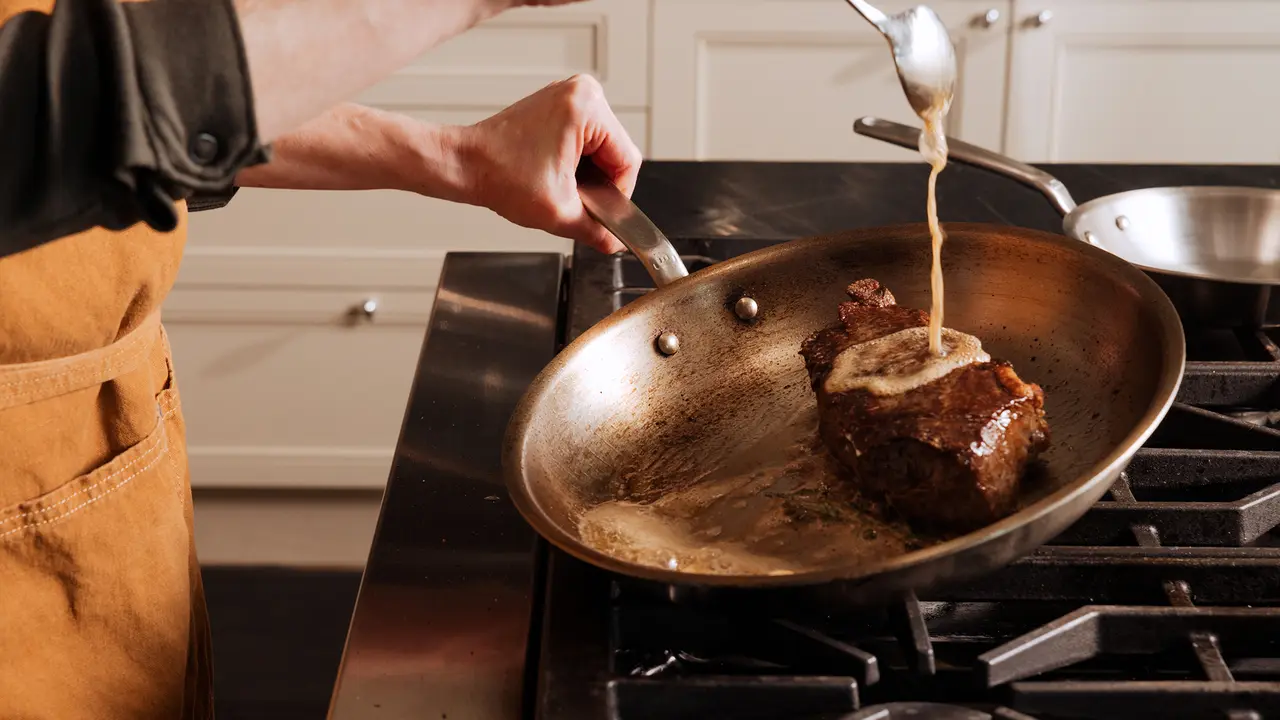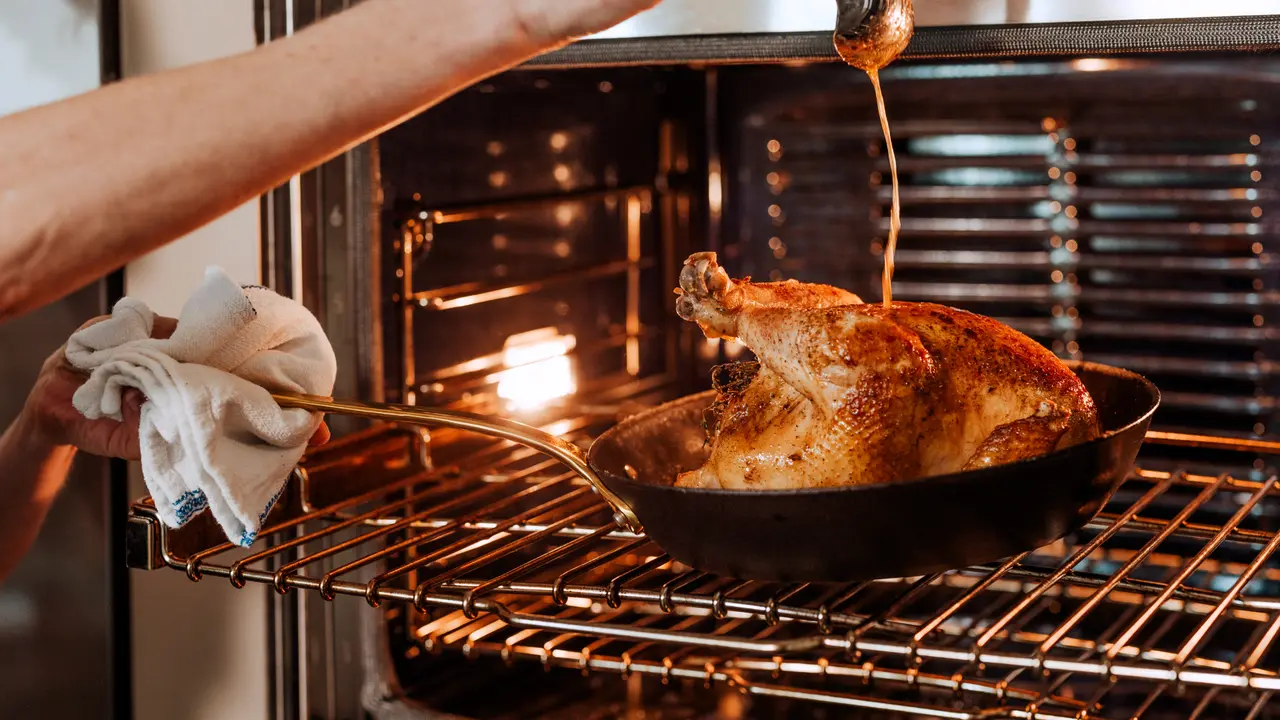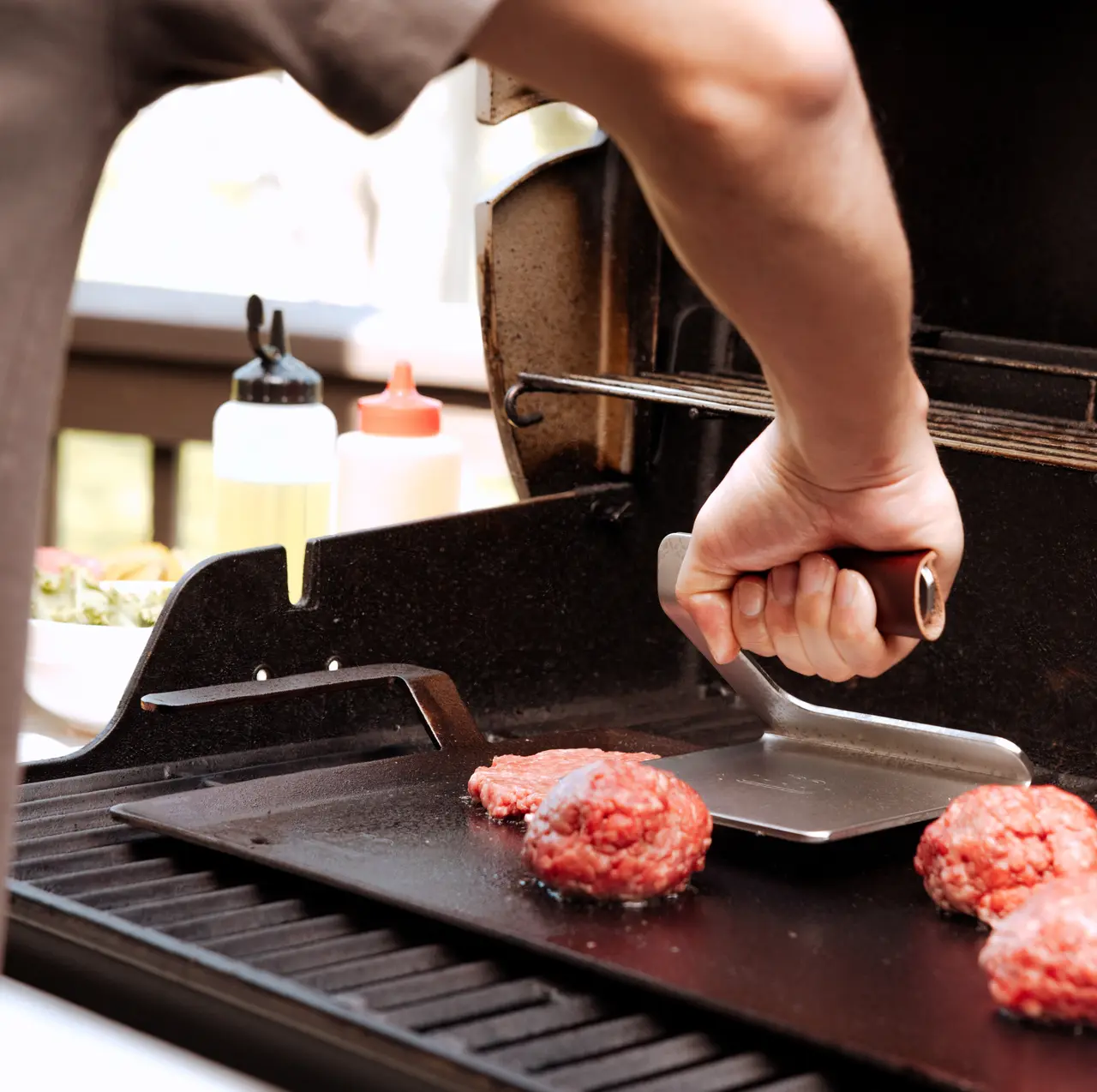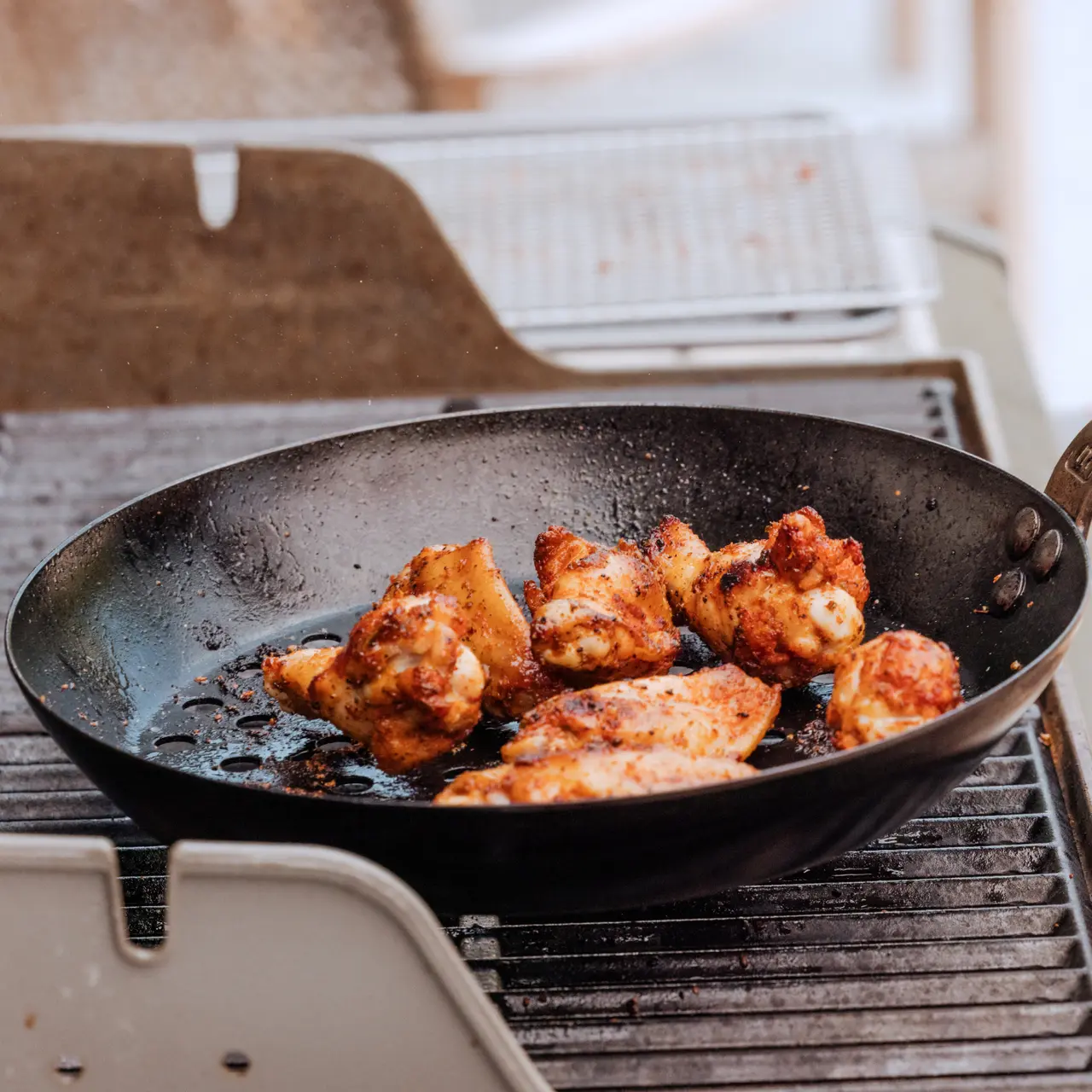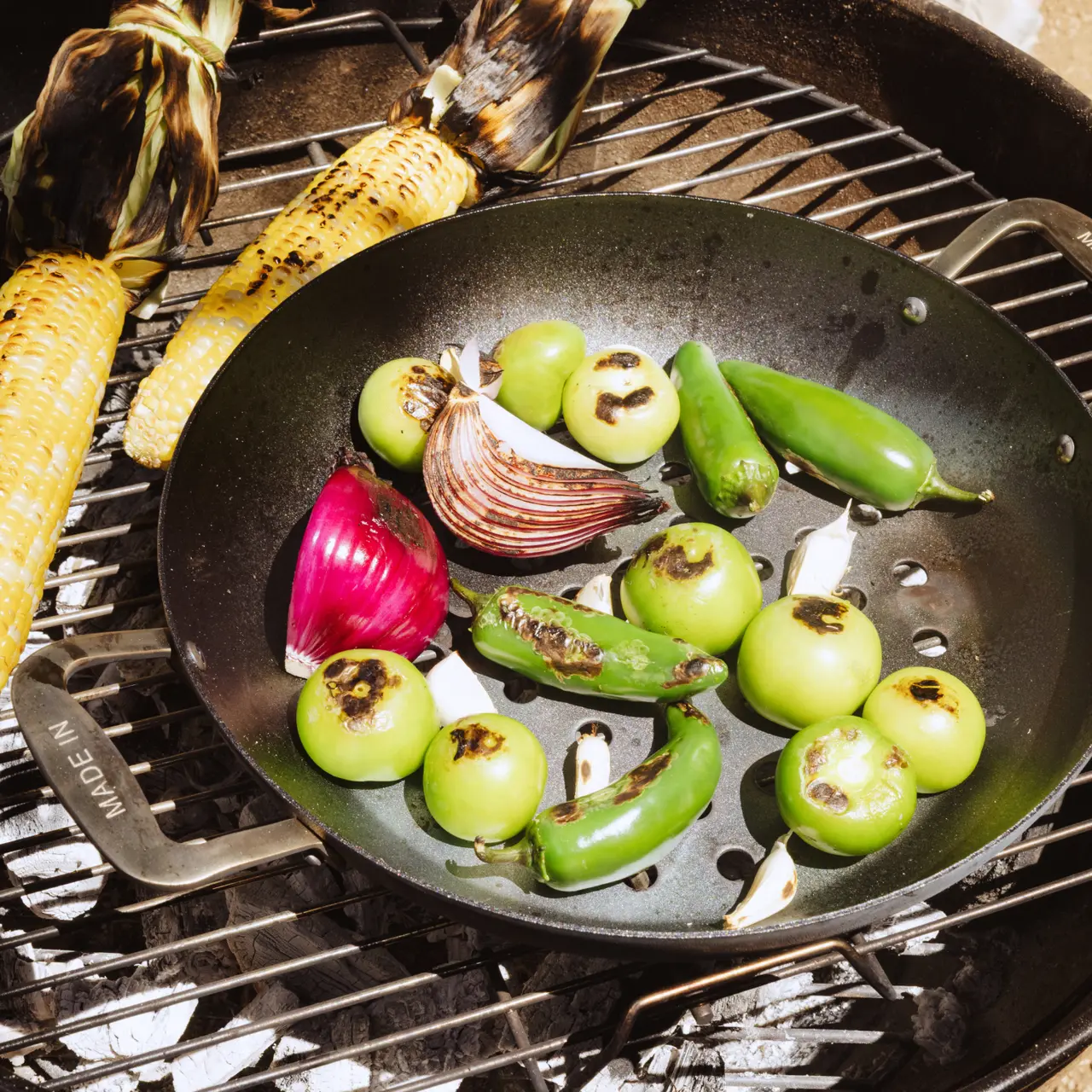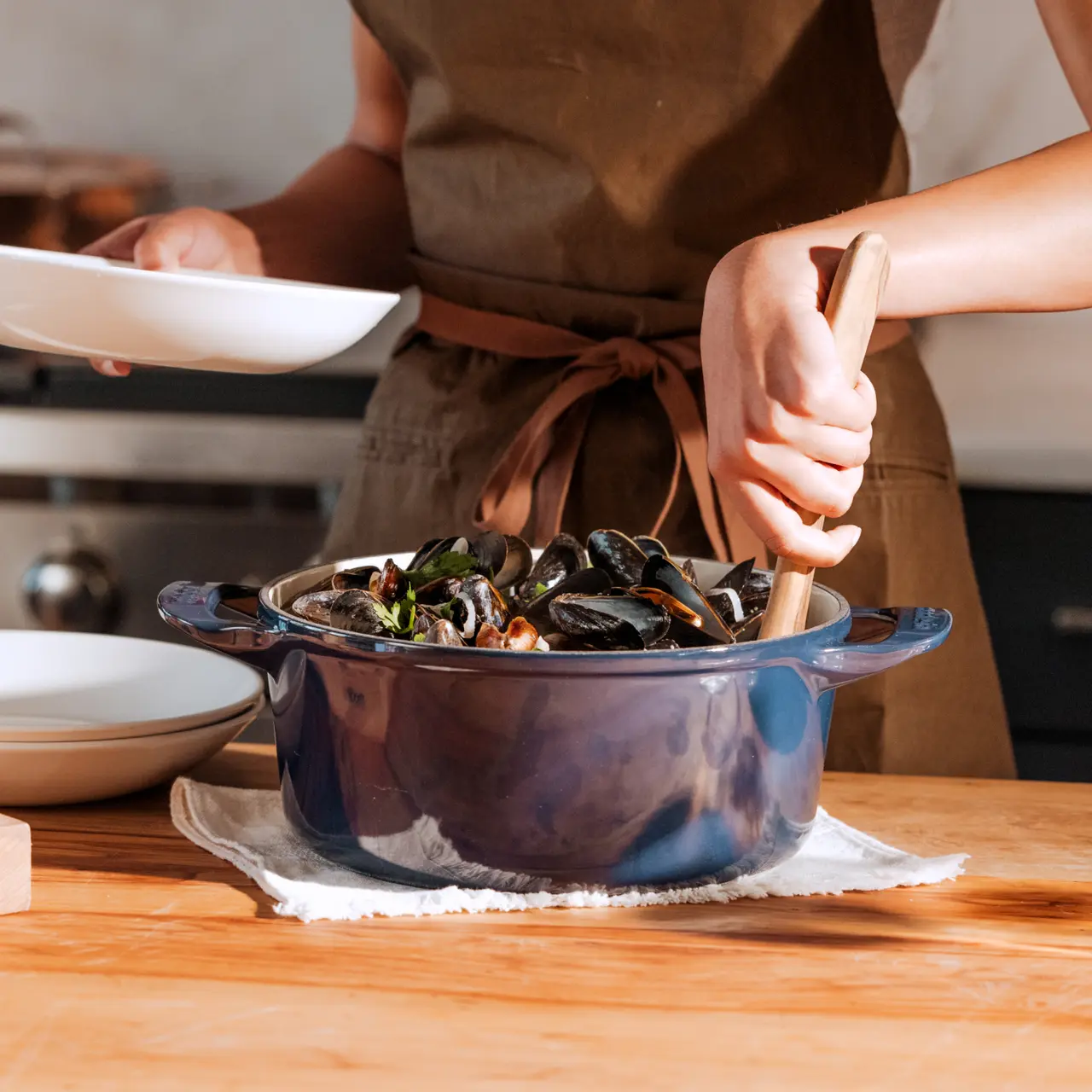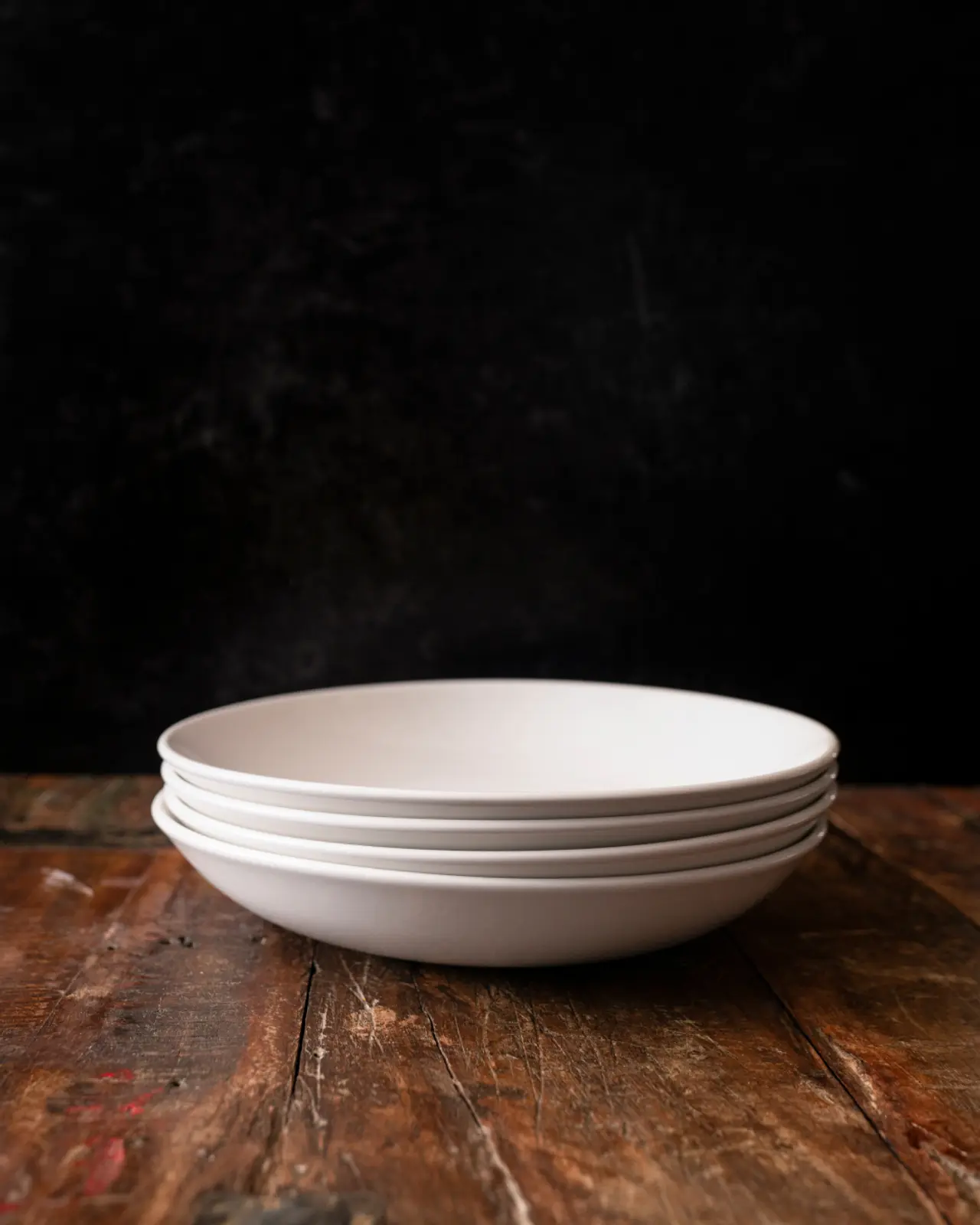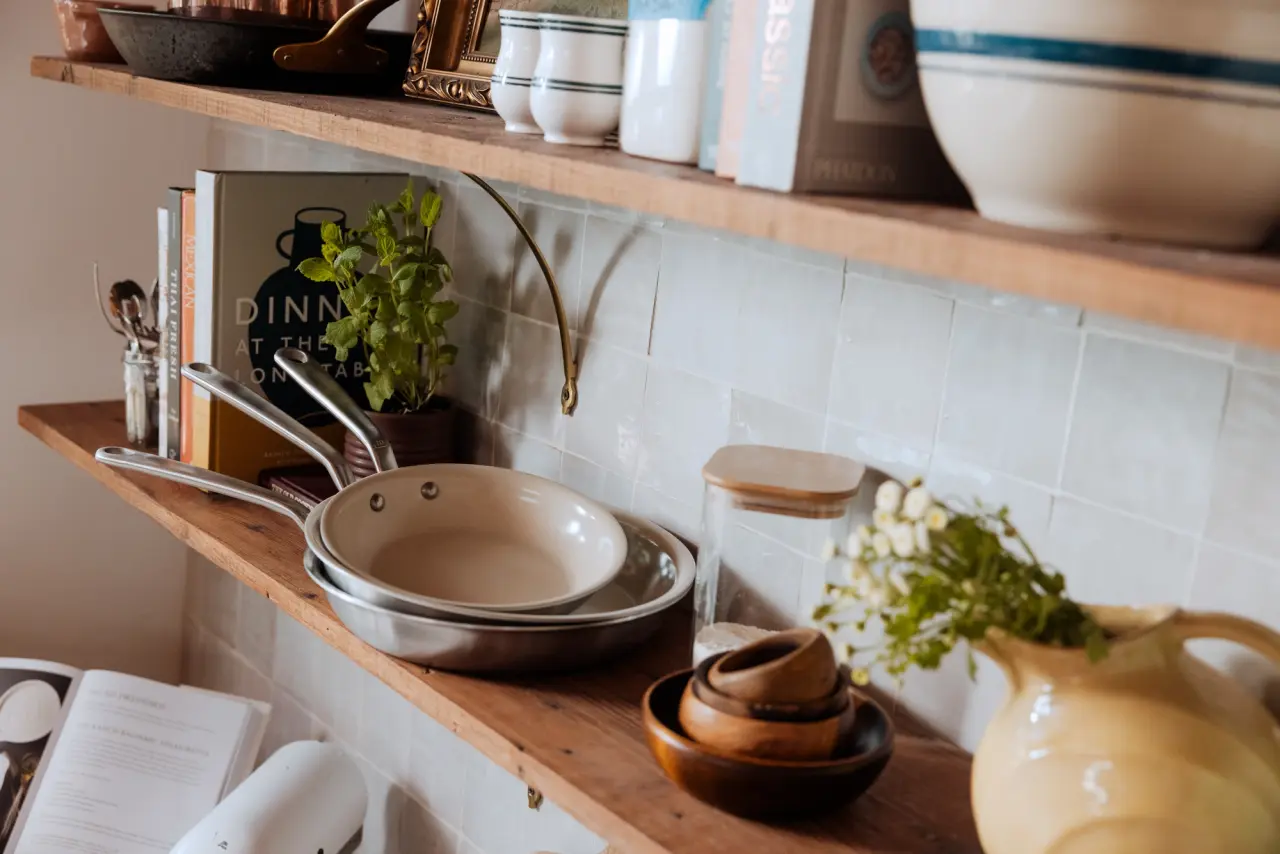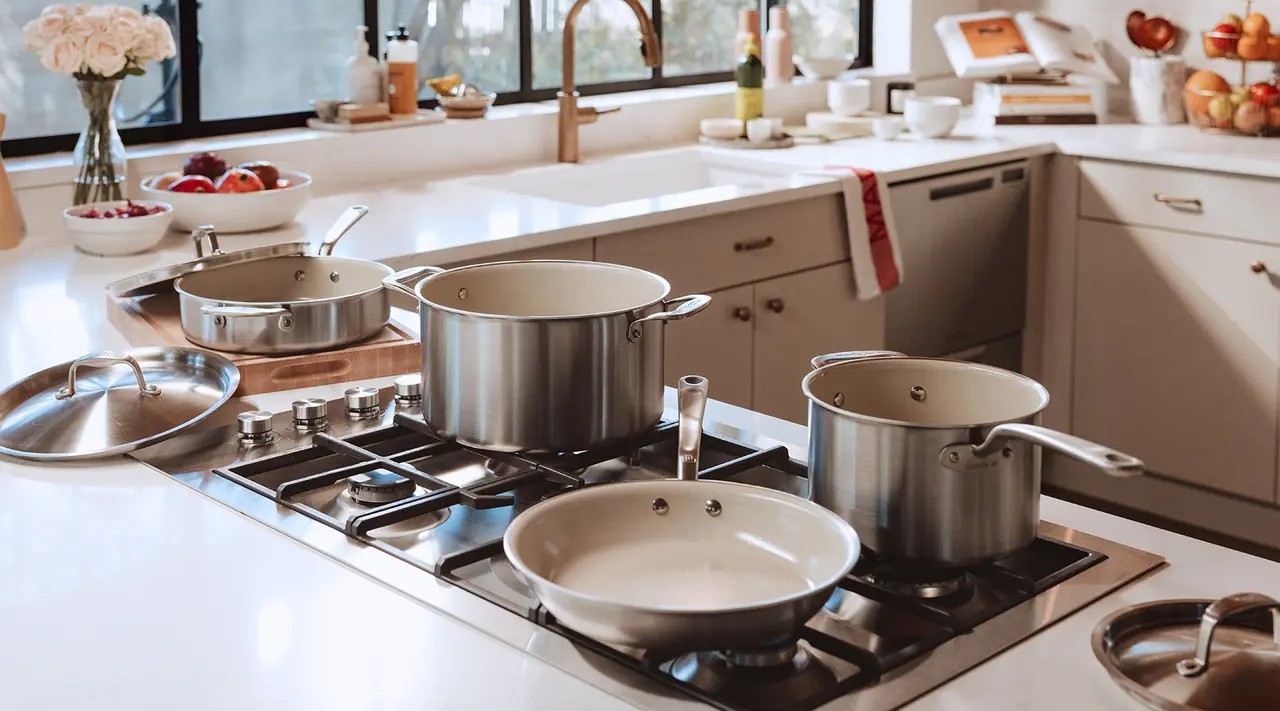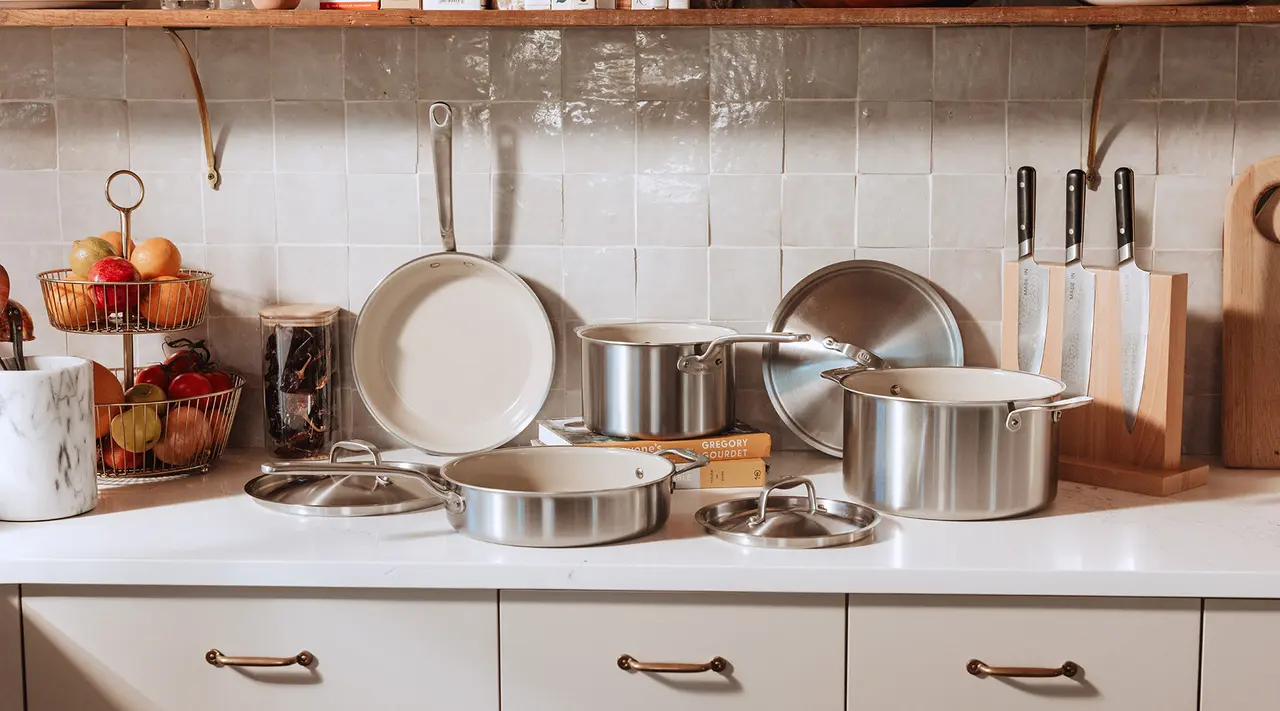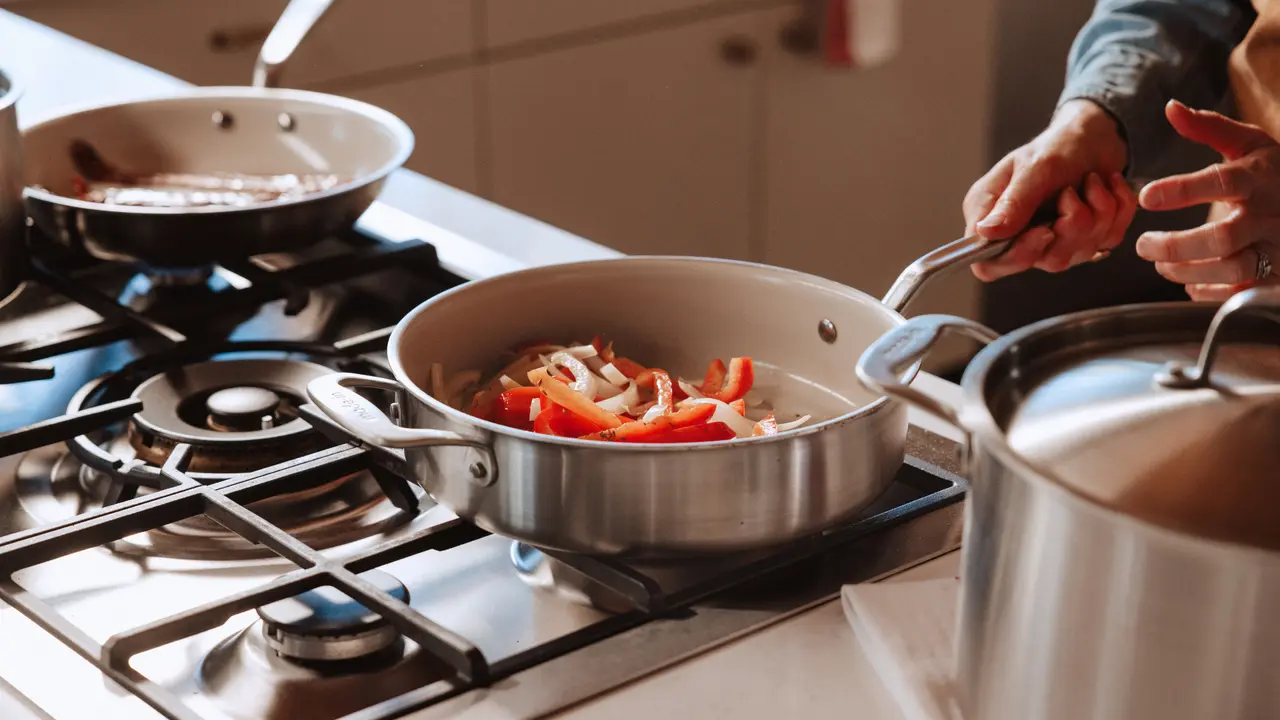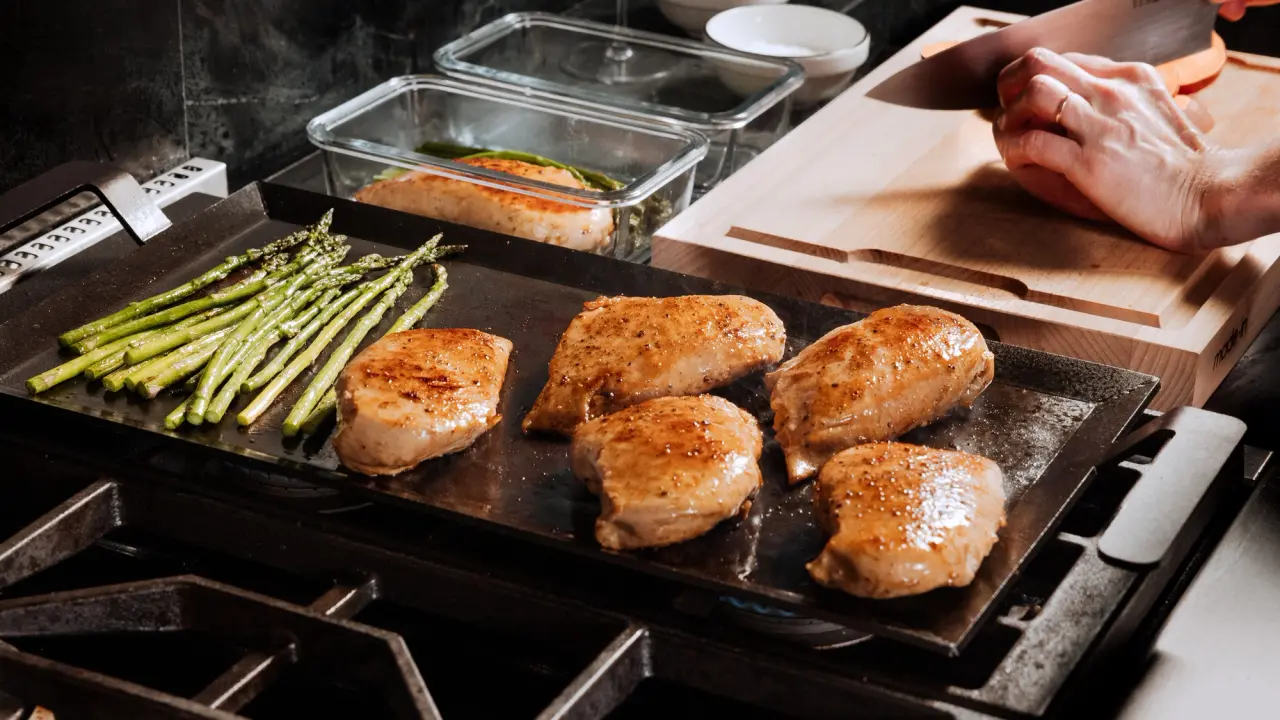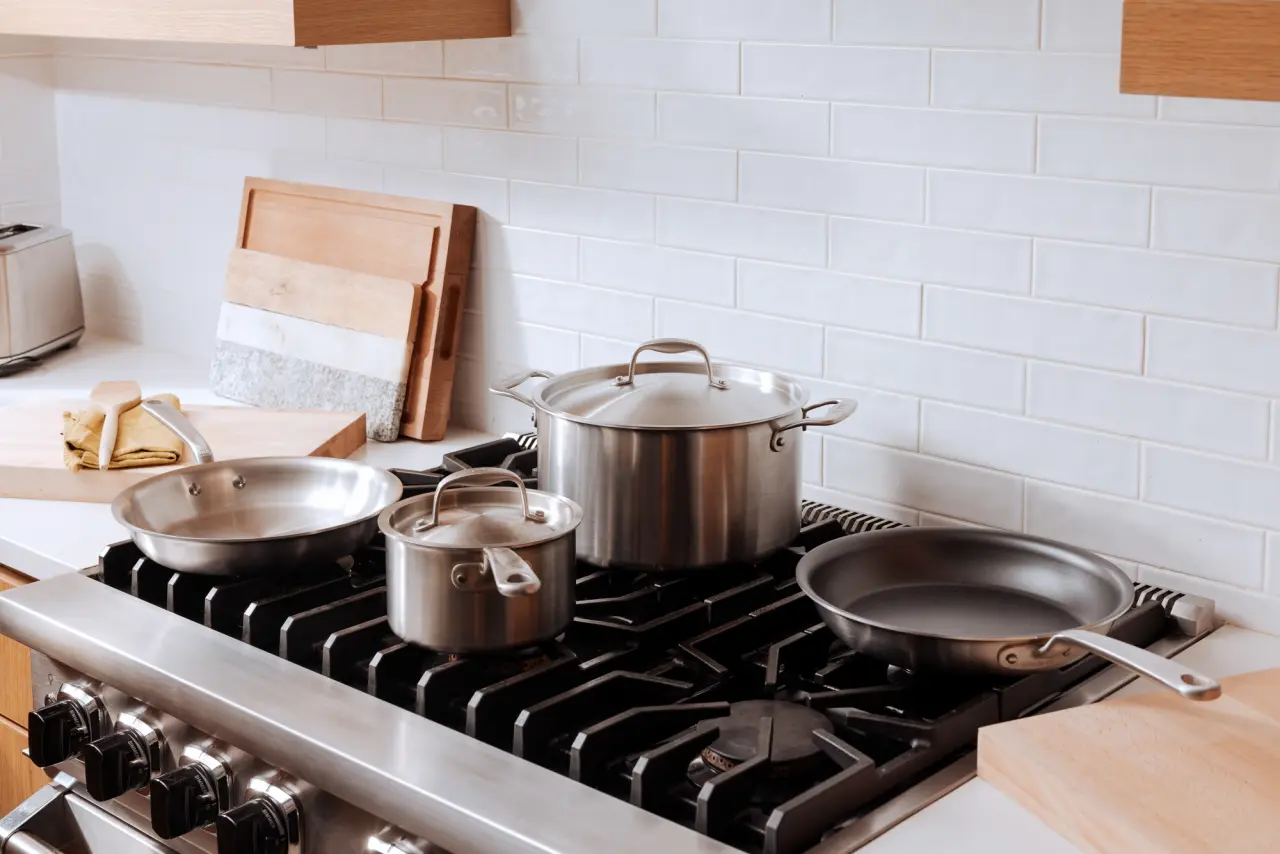Enameled cast iron cookware enjoys a devoted following for reasons beyond aesthetics. Sure, the cookware looks pretty in its range of colors, shapes, and sizes. But the hefty pots and pans are also extremely versatile and durable. Their cast iron core means they distribute heat evenly, while also retaining heat well. Meanwhile, the enamel coating renders each cooking surface virtually non stick, making cooking and cleaning up especially frictionless.
Whether you opt for a Dutch oven or a frying pan, enameled cast iron is suitable for a wide range of cooking projects. Below, we’ll examine how to cook with enameled cast iron to take the guesswork out.
What Is Enameled Cast Iron?
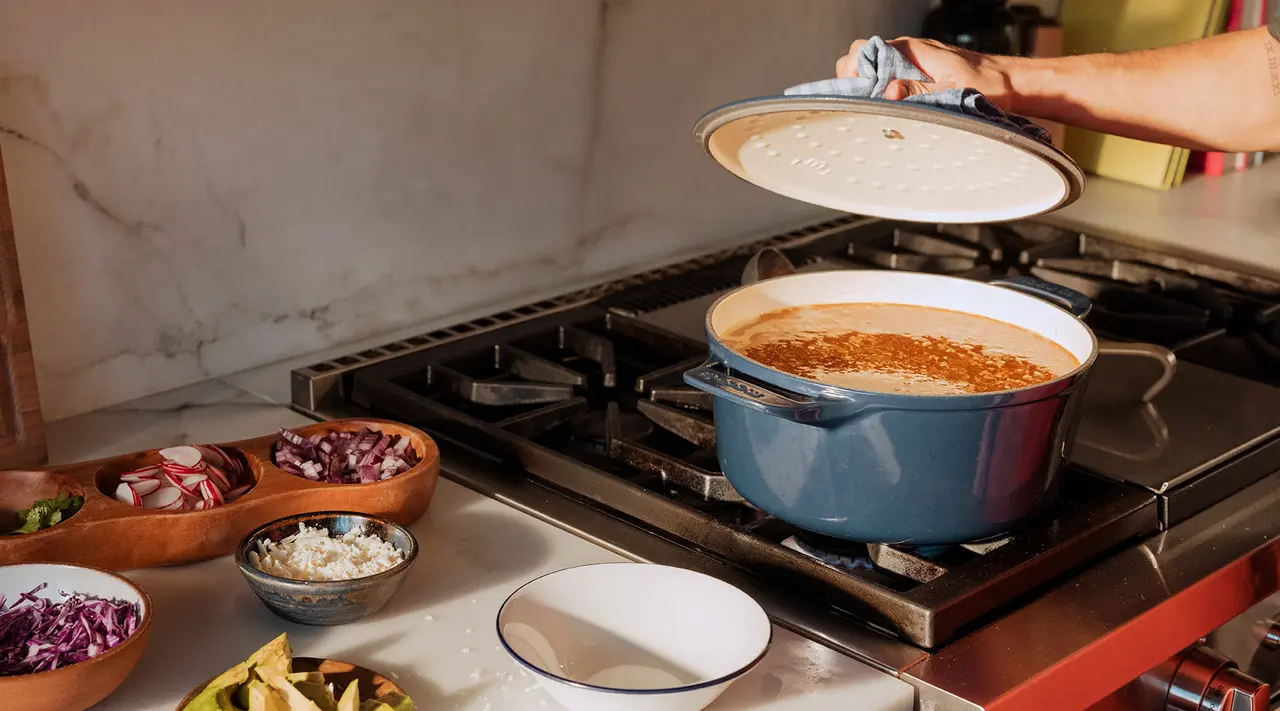
When glass melts under intense heat, it creates an enamel coating that goes on top of unfinished cast iron. This provides a non stick, nonreactive, and easy-to-clean cooking surface. Crucially, an enamel coating offers protection against acidic liquids that can cause rust or corrosion.
Compare this to regular cast iron, with an uncoated surface: unfinished cast iron needs to be seasoned before using, and its unprotected surface can react with acidic ingredients like tomatoes and vinegar. While both types of cast iron make excellent cookware, enameled cast iron definitely has its advantages for home cooks.
Benefits of Cooking with Enameled Cast Iron
- Heat Retention and Even Distribution: Our high-performance cast iron, poured by artisans in Northeast France, makes for a sturdy piece of cookware that retains and distributes heat extremely well. Whether you’re cooking a slow-simmered stew, making a pan sauce, roasting a chicken, or frying a batch of doughnuts, enameled cast iron will prevent scorching and maintain an even temperature.
- Versatility: Enameled cast iron works well on stoves (whether gas, electric, or induction) and ovens. You can sear, braise, bake, or slow cook in enameled cast iron pots and pans.
- Easy Cleanup: That enamel coating makes cleaning up super easy, since it’s virtually nonstick. In some cases more elbow grease and soaking may be required. (Check out our detailed guide on how to clean and care for enameled cast iron for tips if you encounter this.) Another plus: with enameled cast iron, you don’t have to worry about seasoning or maintaining seasoning.
Tips for Cooking with Enameled Cast Iron
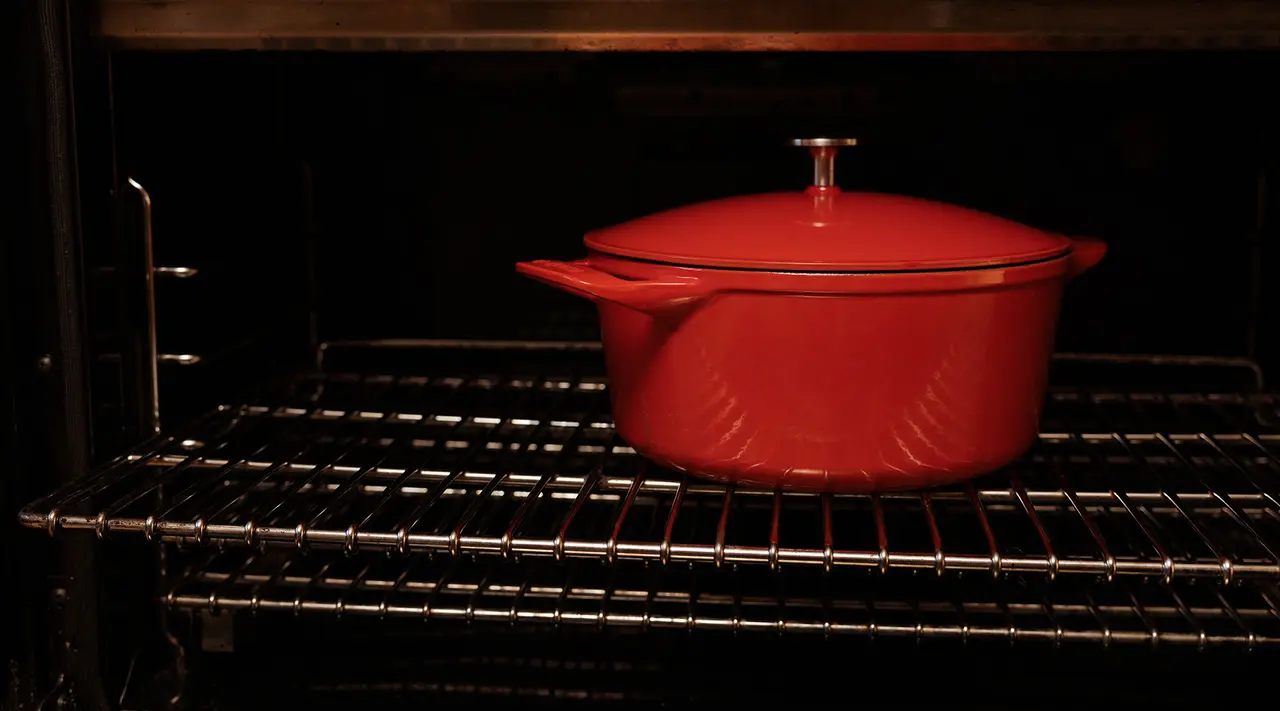
Cooking with enameled cast iron is fairly straightforward, but there are a few things to keep in mind for maximum success.
Choose the Right Piece
Our Enameled Cast Iron Collection includes a variety of cookware, from the super versatile Dutch oven to braisers, skillets, and saucepans.
As you likely know by now from cooking in general, which type of pan you choose depends on the recipe. For roasting, stewing, frying, and the like, a Dutch oven and a saucepan work well. If you’re sautéing veggies or frying an egg, go for a skillet. Braising? Pick the braiser or a Dutch oven.
Clean Thoroughly
Our Enameled Cast Iron is built to last generations. To get maximum usage out of your cookware, you need to take care of it. Our care guide covers all the details, but two key points: clean after every use and always wash by hand.
Heat With Cooking Fat
Similar to non stick cookware, you should always preheat your enameled cast iron with a little cooking fat. The enamel coating can crack and burn when heated empty without any fat.
Practice Temperature Control
While enameled cast iron can handle high temperatures, its heat retaining qualities mean that you shouldn’t really need to heat it above medium (barring some exceptions, of course). In general, cooking at medium or lower will also prevent enamel damage and reduces the risk of scorching your cookware.
Preheat Properly
For even cooking, always preheat your cookware. Set it over low to medium heat, add a little fat, and let the pot or pan heat for a few minutes, until the oil shimmers. Even if you’re in a hurry, it’s best to preheat enameled cast iron slowly rather than over high heat, which risks damaging the coating (and is more likely to end in a too-hot cooking surface that will burn your food).
Store Safely
After you’ve cleaned up your enameled cast iron, be sure to store it properly to avoid chipping or scratching the surface. If you’re stacking other pots or pans on top, be sure to slip a Pan Protector, towel, or soft trivet in between. Other storage options include hanging from a rack or letting it sit pretty, right on the stove.
Temper Your Food
It’s good practice in general to let your food temper, or come to room temperature before cooking it (or at the very least, let it sit out so it’s not straight-from-the-fridge cold).
With enameled cast iron, the risk—minimal risk, but it happens!—of adding cold food to a hot pan is a cracked surface from thermal shock. To avoid this, preheat your cookware over low to medium heat, and let ingredients lose some of their chill before cooking.
Use Appropriate Utensils
Enamel coating is durable, but it’s not indestructible. Use wood or silicone utensils, rather than sharp-edged metal or other abrasive materials, to help protect the cooking surface. If using metal utensils, take care to not saw or scrape the enamel aggressively.
Best Cooking Techniques for Enameled Cast Iron
Enameled cast iron can be used for a wide range of cooking tasks, but it’s especially well-suited for:
- Searing and Browning: The even heat lets proteins and vegetables cook evenly.
- Braising and Slow Cooking: Even heat distribution means low-and-slow dishes like stews and braises work especially well in enameled cast iron.
- Baking: Dutch ovens and skillets work especially well for baking bread, casseroles, and desserts.
- Simmering and Sauces: the nonreactive surface means you can deglaze a pan with vinegar or wine and simmer acidic foods like tomato sauce without worry.
Ready to Cook?
Not that we’re playing favorites, but if we were, enameled cast iron would be right up there as some of our most loved pieces of cookware. Known for their versatility, famed for their durability, and tested for their heat retention and distribution, now that you know how to cook with enameled cast iron, you’ll be hooked forever. Browse our French-made Enameled Cast Iron Collection to pick out a new piece for your kitchen.
